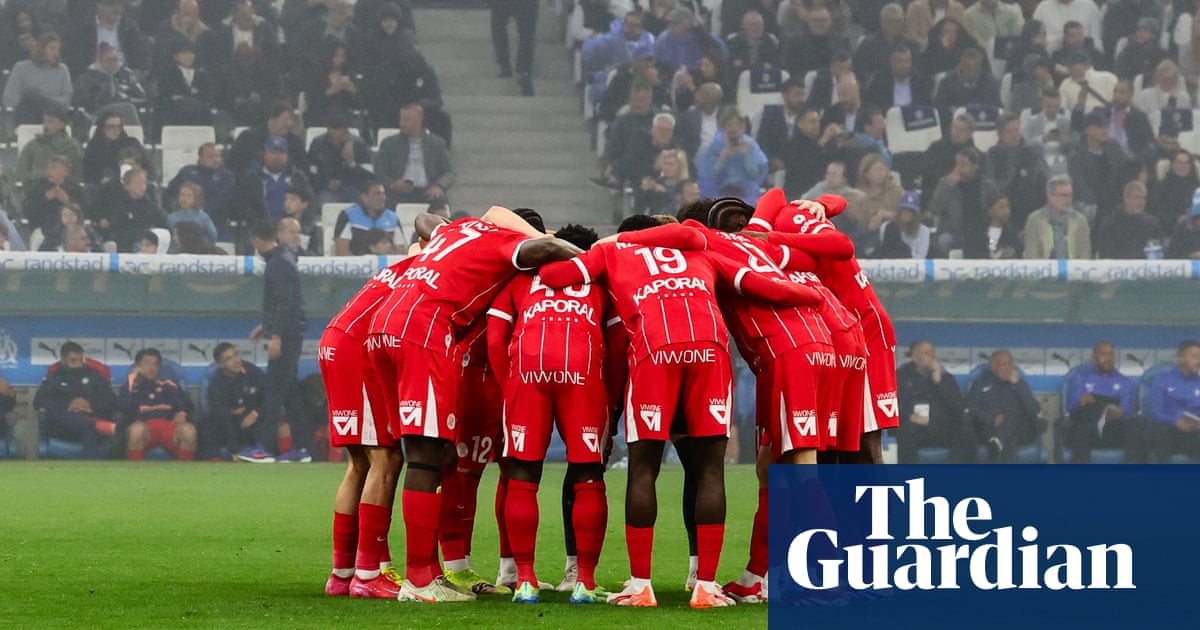If it is results that count,tout va bienforLigue 1. Having so far accrued its second-highest total of Uefa ranking points in a single campaign, the “league of talents” remains on course to register its best season in Europe since the 1990s, when Marseille, Paris Saint-Germain, Monaco and others regularly featured in the latter stages of Uefa competitions.
A transformed, exuberant if still-not-quite-perfect PSG hope to go one better than the Thomas Tuchel side who lost the2020 Champions League final to Bayern Munich, andLyon gave Manchester United an almighty scarein the quarter-finals of the Europa League.Brest and Lille defied the oddsby qualifying for the knockout stage of the Champions League, beating teams such as PSV, Atlético Madrid and the holders, Real Madrid, on the way. The conveyor belt of young talent shows no sign of slowing, the 17-year-old Ayyoub Bouaddi of Lille and PSG’s Désiré Doué the latest French academy products to break through on the biggest of stages.
However, those results tell only part of a much bleaker story, which can be summed up in four words. French football is broke. Not facing financial challenges or in need of fresh investment.Broke.Despite the €1.5bn (£1.28bn) windfall generated by the sale of 13% of its media rights subsidiary to the US private equity fund CVC Capital, and despite a net surplus of €830m in player sales last season, the Ligue de Football Professionnel (LFP) lost a combined quarter of a billion euros in 2023-24. It will get worse. The French regulator, the DNCG, fears that Ligue 1’s operating loss will reach €1.2bn this time round.
In this, Qatar-funded PSG isl’arbre qui cache la forêt, the tree which hides the forest. Wherever else one looks, with the possible exception of Rennes, Monaco and Marseille, the situation is dire, with at least three Ligue 1 clubs – Angers, Le Havre and Montpellier are the names most often mentioned – facing such difficulties that they could go bankrupt before the season is over. John Textor’s Lyon, who accumulated losses of €117m over the first six months of the 2024-25 season, are not faring much better.
Lyon will learn only on 31 May whether they have done enough to convince the French regulator to suspend the administrative relegation to the second tier it ordered last November.
The French football federation president, Philippe Diallo, a man not prone to exaggeration, has talked of a crisis which is “not temporary, but structural”. He told the French radio station RTL: “For several decades professional football has relied on a growth in broadcasting rights and a very active transfer market. These two characteristics are now being questioned. Broadcasting rights are on a downward trend and the transfer market has reached a ceiling.”
Diallo was painting too rosy a picture. The ceiling he referred to has already moved downwards. In the last transfer window, when Ligue 1 sold a record €357m worth of players, cash-strapped clubs parted with players they wanted to hang on to for a while longer, such as the Reims vice-captain Emmanuel Agbadou, now at Wolves, or the Lens defenderAbdukodir Khusanov, signed by Manchester City. Foreign buyers knew it and drove down the prices; not only did the selling clubs lose core talents they intended to build their future on, but they did so at a discounted price, digging the hole a bit deeper in their efforts to climb out of it.
As to media rights, on which Ligue 1 clubs primarily rely for their survival, Diallo’s “downward trend” was a euphemistic way to describe a scene of carnage since the collapse of Mediapro four years ago. The dream of securing more than €1bn of revenue a year from broadcasting deals, which many Ligue 1 clubs had foolishly integrated in their financial projections, is over.
The LFP just about managed tocobble together a deal with Dazn for this season, which was supposed to bring in an estimated €400m a year from the British streaming platform until 2029, to which another €100m would be added by the sale of the rights to one marquee game a weekend to beIN Sport. But Dazn too is losing money, a lot of it. It is some way off the one million subscribers it needed to break even in France. Piracy is rife, as fans balk at paying €85 per month if they wish to see every match played by their club in France and Europe, for which Ligue 1’s historical partner, Canal+, owns the rights.
Dazn claims its losses, estimated to be about €200m-€250m, are the consequence of the league having “fraudulently” misrepresented its offer. The parties are involved in a legal wrangle which took an unexpected and potentially disastrous turn last week, when Ligue 1 club presidents met in Paris and cut short their agreement with the broadcaster; which is exactly what the broadcaster has threatened to do if LFP did not pay compensation. Dazn is understood to have refused the package offered by the league, with another tranche of €70m due at the end of April. The problem is that, with Dazn out of the picture, and unless LFP has a genius plan which no one has been made aware of, no other broadcaster seems ready and willing to take its place – unless the league agreed to bring its price down, which it cannot afford to do.
Less than a year ago Bordeaux,former Uefa Cup finalistsand winners of their sixth French title in 2009, were declared bankrupt and demoted to the fourth tier. It was hoped at the time that they were an outlier, victims of catastrophic mismanagement. They were, to a point; but they were also the canary in the coalmine, more fragile than the rest, and therefore likely to be the first to be hit by the “structural crisis” Diallo talked about. It is unfortunately probable that they will not be the last.
